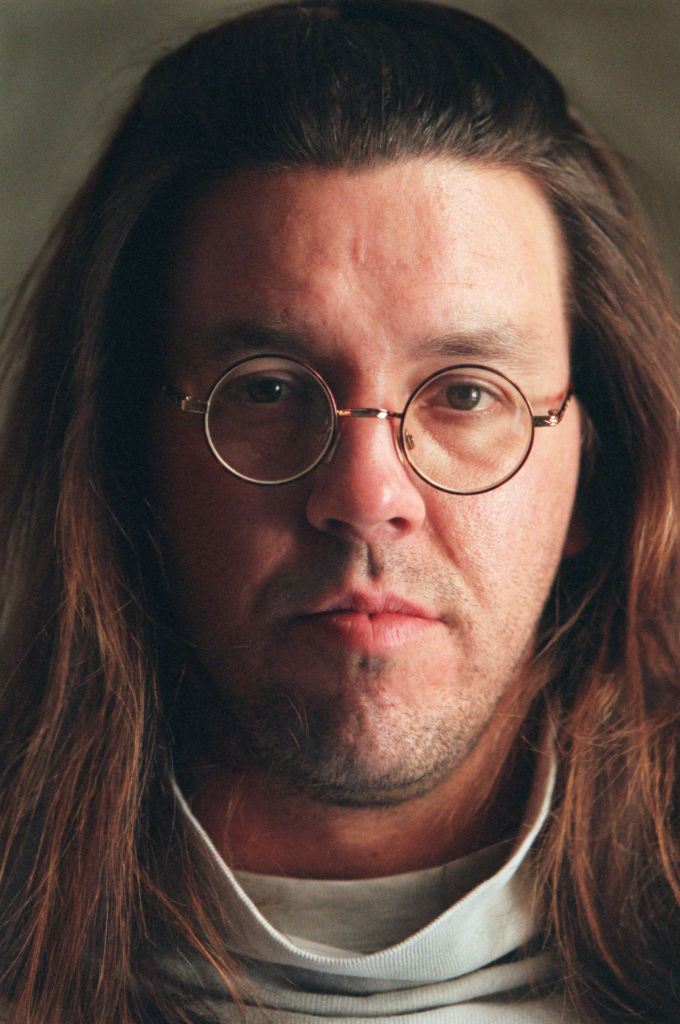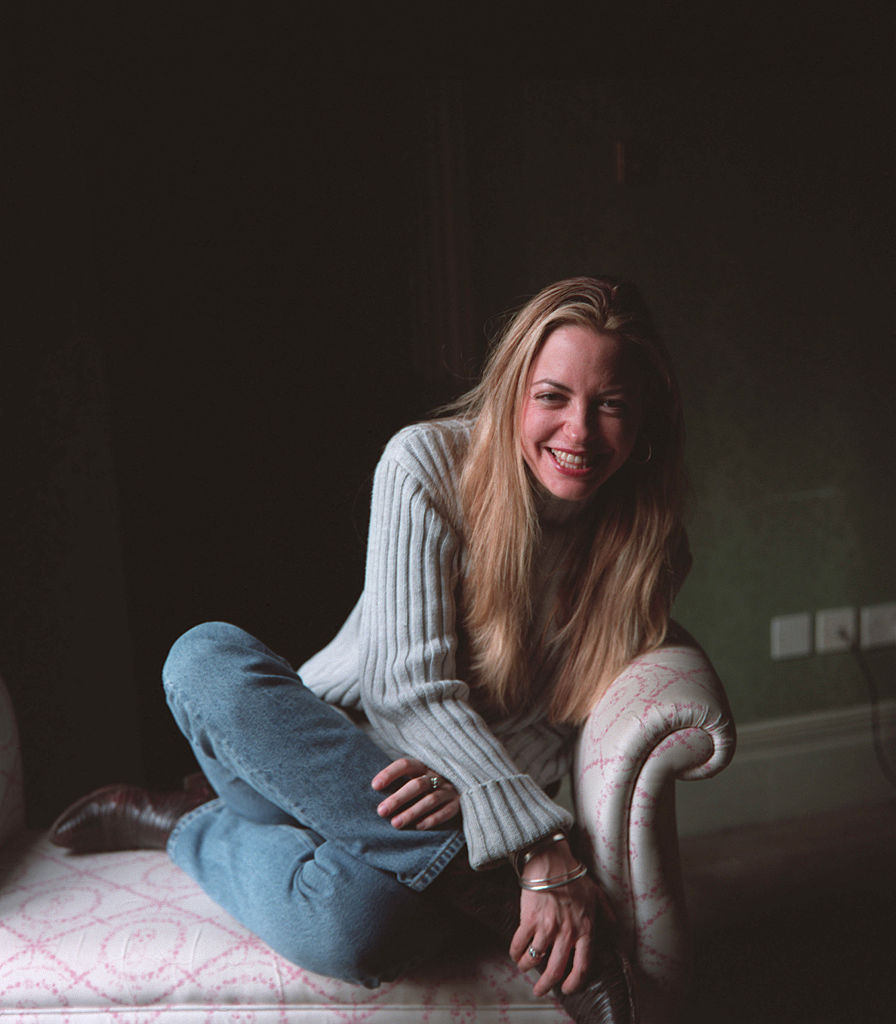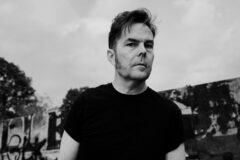The kids are not all right, according to the internet. Gen Z, and I suppose now Gen Alpha, is/are experiencing anxiety and depression at unprecedented levels. Most of this is a reasonable reaction to the fact that we are inhabitants of a self-immolating rock hurtling towards extinction; and to the latest terrible news about (please pick at least three) climate change, war, terrorism, gun violence, bird flu, the liquifying ham hock we elected president, nuclear proliferation, Elon Musk, banjos. We all, to some degree, have this kind of anxiety and/or depression. Everybody hurts, a formerly not-terrible rock band sang, though ironically that song was itself terrible.
Even so. I don’t buy it, partly because I don’t trust anyone under 30, and partly because I have struggled for longer with actual anxiety and depression than these children have been alive. I’m not talking about pervasive sadness or an undercurrent of unease. I’m talking about a disease that paralyzes you, leaves you unable to move, to get out of bed, to get dressed, to perform basic hygiene. I’m talking about anxiety so acute that you dare not answer the phone or your email or the door or, God forbid, leave the house. These are things with which I grapple on a daily basis, and have done so since at least the mid-’90s.
This varietal of depression directly or indirectly killed Kurt Cobain, David Foster Wallace, Anthony Bourdain, and many less-famous people. These are not reasonable reactions to particular or even general issues. These are poorly understood chemical imbalances in the brain that strike randomly, often without specific triggers, and which left untreated will destroy you as thoroughly as abuse of any Schedule 1 drug. Alcohol was my self-medication of choice, back before we knew the term self-medication, and honestly, though I did absolutely drink to excess back in the day, without alcohol I probably wouldn’t have been able to function. I still drink, but I have cut back a lot. It will maybe give you some idea of the severity of my issue that when I cut back on my drinking, in the early 2000s, I lost 40 pounds in about three months.

In the ’90s, when I first sought help for what I did not know was an actual disease, the general public did not really have the vocabulary to describe what I was going through, and it was discussed, if at all, in hushed tones and considered a source of weakness and shame at best and an exaggeration or sham at worst. When I first visited a psychiatrist, in Dayton, Ohio where I was living at the time, he told me “When I saw you in the waiting room I could tell you were depressed.” He put me on Prozac, and within six months I had left the band I was playing in, broken up with my girlfriend, alienated most of my friends, and moved to Los Angeles. It was the best thing ever to happen to me, but I did not at the time see it that way. I had also not yet stopped drinking (my doctor told me not to drink on Prozac, I ignored him) and I had stopped taking Prozac before I left town.
I remember around this time running into Elizabeth Wurtzel, author of Prozac Nation, and asking her if she really thought Prozac was The Answer. She told me bluntly, “I would be dead without it,” and though she did in fact die far too young, it was not depression that killed her, but cancer.

In the last few months of Kurt Cobain’s life, his management team tried putting Prozac on his dinner tray on tour, and he steadfastly refused to take it. Not to say things would have turned out hunky dory had he done so — everyone’s biochemistry is different, everyone’s psychological makeup and specific problems are different. Prozac was the wrong drug for me, certainly. But we have now a range of options, some of which do not involve medication, although I myself have benefited greatly from a specific mix of meds that I will not discuss here because what works for me might not work for anyone else. On top of that I took up Transcendental Meditation, which also helps greatly, or did until David Lynch — the reason I took up TM in the first place — died, which was depressing. No, see, it wasn’t depressing, it was sad, which are two different things. You can be sad but not depressed. Depression is a clinical term to describe a specific mental state. Sad is just life.
I wrote a movie a few years back called Unsane. It was directed by Steven Soderbergh, and starred Claire Foy as a woman who’s suffering from PTSD (a different form of depression) as a result of having acquired and been unable to shake a stalker. In her interview with an intake counselor, she expresses what’s called “suicidal ideation,” which is a fancy term for saying that she has considered taking her own life. She’s then immediately committed to an institution for observation. I took this scene, or a variant of it, from a visit to my PCP many years ago. He asked if I ever thought about killing myself, and I replied “Every day. Doesn’t everyone?” He told me that he knew I was joking, but that he could have me committed for saying that. That’s the law, at least in California.
I wasn’t joking. I really did, and sometimes still do, think about suicide. And I assumed everyone else did and does, too. For myself, maybe not in a proactive way, but idly, as one in a broad menu of options I occasionally peruse (another item on this menu is “become a circus clown,” and still another is “learn to read the room.”). But because I have been properly treated and continue to receive treatment for my Major Depressive Disorder and Social Anxiety, and for other reasons too personal to discuss here, I no longer seriously consider taking my own life. It’s not because I have “too much to live for,” or any other cliché. It’s because I took my condition seriously, and allowed myself to receive the help that I needed. In too many cases — and I could talk here about recent tragedies, but let’s don’t — one of the reasons people end up either directly or indirectly (I consider, for example, drinking yourself to death a form of both suicide and depression) killing themselves is that there is still a stigma around depression, still a sense that you are weak if you ask for help, that you should grin and bear it, that it’s not a real disease like lymphoma or being allergic to Metallica. This is absolutely not true.
Robert Burton’s 1621 classic The Anatomy of Melancholy has sat in my office for as long as I can remember. It’s a hilarious book, in some ways, and only partly about what it says it’s about (much like most of my own books and essays) but it was also one of the first serious attempts to classify a disease that remains only partly understood. “I write of melancholy by being busy to avoid melancholy,” says Burton, and that’s pretty much what I spend my life doing now. There are worse things. Accordions, for example. But I’ll give the last word here to Dorothy Parker, a failed suicide (barbiturates, after a love affair gone wrong).
Resumé
Razors pain you;
Rivers are damp;
Acids stain you;
And drugs cause cramp.
Guns aren’t lawful;
Nooses give;
Gas smells awful;
You might as well live.


Leave a comment